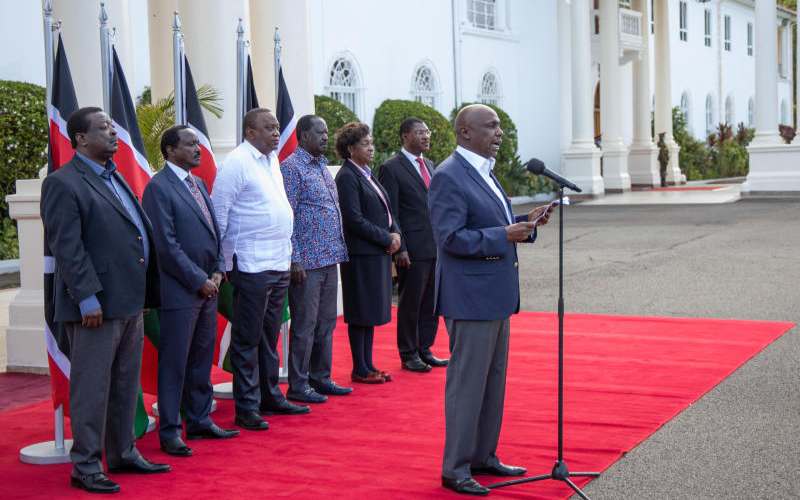×
The Standard e-Paper
Kenya’s Boldest Voice

President Uhuru Kenyatta with party leaders Gideon Moi (Kanu), Musalia Mudavadi (ANC), Kalonzo Musyoka (Wiper), Raila Odinga (ODM), Charity Ngilu (Narc) and Moses Wetang’ula (Ford Kenya) during a joint press briefing at State House, Nairobi, on Thursday. [PSCU]
Intense pressure is mounting on the ‘Super Seven’ to strike a delicate balance in facilitating passage of the Building Bridges Initiative (BBI) while also maintaining a united front good enough to form a post-referendum government.